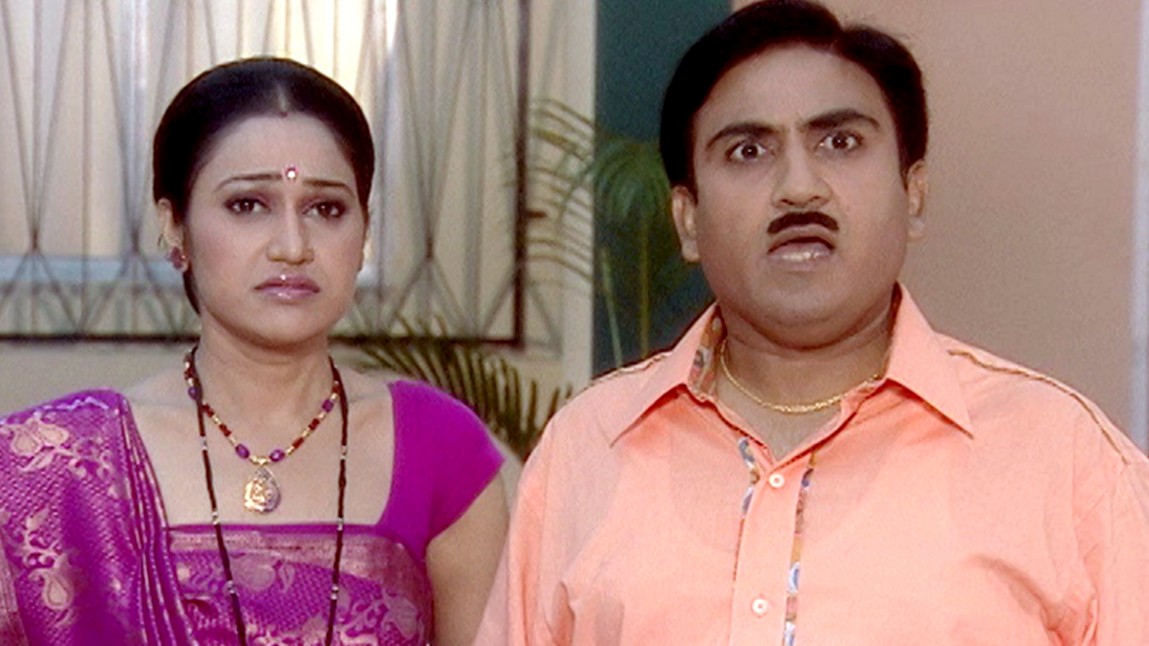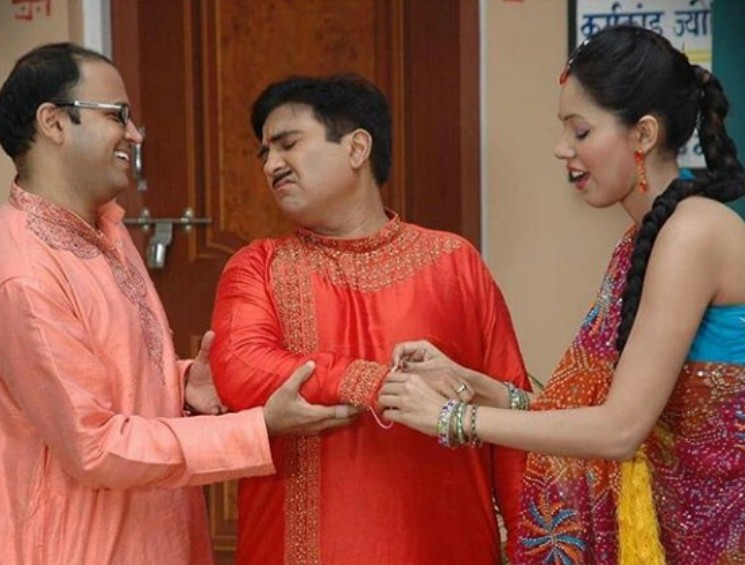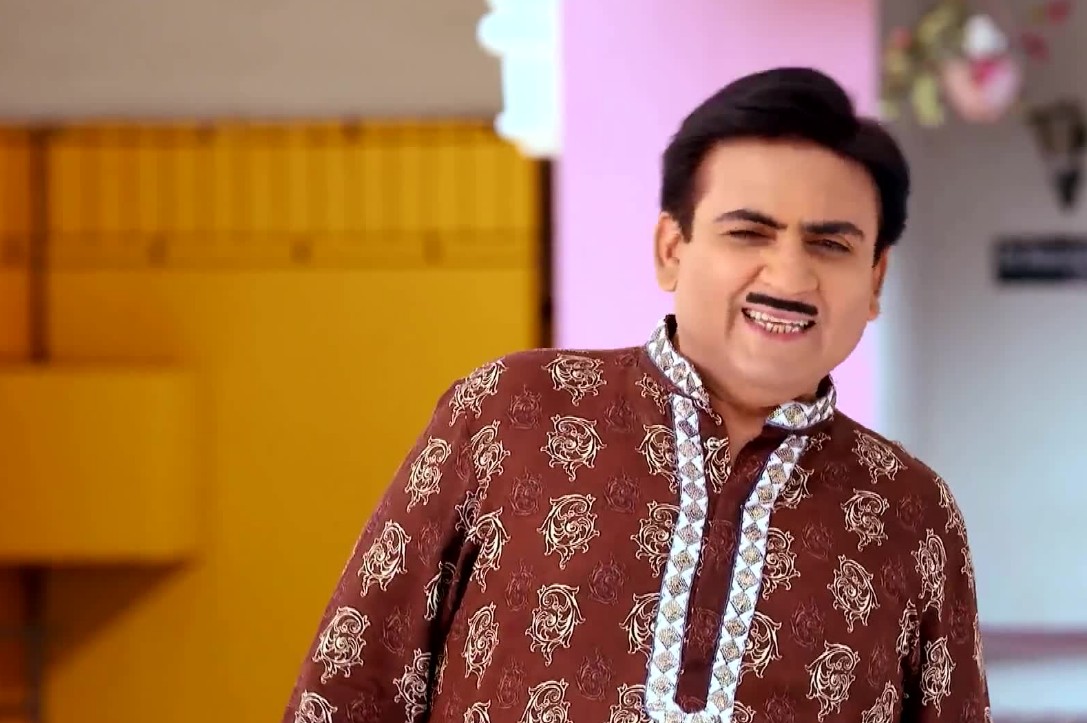Taarak Mehta Ka Ooltah Chashmah: The ‘Family Show’ That’s Actually a Masterclass in Everyday Sexism | OTT Stream Queen
There are some shows that burrow so deep into our collective consciousness that they feel like an extension of home. ‘Taarak Mehta Ka Ooltah Chashmah’ is one of them. The title track, the sound effects, the familiar rhythms of Gokuldham Society, it's all so deeply ingrained that evenings once felt incomplete without the soda parties, the ‘Hey maaa maaata ji!’ exclamations, and Jethalal's antics.
This show has been running for 17 years, longer than most marriages, careers, and certainly longer than the average attention span. But when you take off those rose-tinted spectacles and look at it clearly, you realise something uncomfortable: not everything ages like fine wine. Some things curdle like day-old dahi.
And Taarak Mehta Ka Ooltah Chashmah hasn't aged well at all.
The Sweet Origin Story That Got Lost in Translation
The show's backstory is genuinely lovely. Taarak Mehta was a real person, a journalist and humorist who penned a Gujarati column called ‘Duniya Ne Undha Chashma’. His writing captured chawl life with warmth, peopling it with relatable families whilst delivering sharp social and political satire.
The TV adaptation lifted this premise, transforming the chawl into Gokuldham Society and filling it with characters we've come to know intimately: Jethalal, Dayaben, Taarak Mehta himself, Anjali Bhabhi, Dr Hathi, Komal Bhabhi, Bhide, Madhavi, Iyer, Babita, and the Sodhi family. But somewhere along the way, patriarchy moved in as a permanent resident and never paid rent.
1
2
3
4
Gender Roles That Belong in a Museum, Not Your Living Room
From the very first episode, TMKOC made one thing crystal clear: gender roles are sacred and unquestionable. Women belong in the kitchen; men belong on the balcony, ideally positioned for maximum ogling opportunities.
When hunger strikes, these man-children throw their weight around, expecting their wives to function as alarm clocks, cooks, and full-time domestic staff. Household work? Not in their job description.
The women of Gokuldham are positioned as ideal wives, devoid of significant personal ambitions or careers. Madhavi runs a small pickle and papad business, and that's about it. Like dutiful spouses, these women don't just ask their husbands for pocket money; they seek permission for practically everything, where to go, what to do, how to exist.

When 'Affection' Is Actually Disrespect
Dayaben doesn't even call her husband by his name, it's always ‘Tappu ke papa’. And what does Jethalal lovingly call her? ‘Pagal aurat’, ‘satvi fail’, ‘nonsense’, because apparently, she needs constant schooling. Somehow, this verbal degradation is played for laughs.
The social dynamics are equally troubling. Men bond over soda and gossip whilst women gather around the vegetable cart. Even when the ladies venture out to a kitty party or restaurant, the entire conversation revolves around their husbands. One episode literally builds up to women dining out, only for them to spend the entire time discussing the men in their lives.
The small insights peppered throughout are equally regressive: wives don't eat until their husbands return home, and housewives apparently have nothing better to do than wait around. If that's not social conditioning masquerading as tradition, what is?
The Babita Obsession: Harassment Dressed as Comedy
Dayaben is positioned as the nation's most ‘innocent’ wife, so innocent that she doesn't object whilst her husband shamelessly flirts with Babita right in front of her. She wakes up first, stays impeccably dressed, cooks, cares for her husband, son, and father-in-law, and in return, gets blamed for everything. Tappu's misbehaviour? Her fault. His uncle's failures? Her fault. Jethalal's indigestion? Her fault. Babuji goes missing? Obviously her fault.
When she's angry, she doesn't shout or express herself, she takes a maun vrat. Because heaven forbid a woman voice her anger directly. Her innocence extends to absurdity: Dayaben opposes selling roti makers at Gada Electronics because using a machine for rotis is ‘anti-sanskaari’.

Body Shaming and Colourism: The 'Jokes' That Aren't Funny
Then there's the relentless body shaming and colourism that viewers have somehow normalised.
Dr Hathi's entire identity revolves around his weight, his name literally means elephant, complete with trumpet sound effects whenever he appears. Because he's fat, he's portrayed as good-for-nothing, lethargic, and unprofessional. Iyer is mocked for his dark complexion, Popatlal for being single, Sodhi for being Sardar, ‘balle balle balle’ on repeat, as if that's the height of comedy.
And Jethalal's obsession with Babita? Treated like a harmless running gag instead of what it actually is: workplace harassment. Imagine if the genders were reversed, would it still be considered funny?
Don't Miss: Comedy or Misogyny? How Bhabiji Ghar Par Hain Normalises Harassment in the Name of Fun | OTT Stream Queen
‘It's Just Comedy' Isn't a Defence
Inevitably, someone will say: ‘It's just comedy, don't take it so seriously!’
But that's precisely the point. Comedy that normalises sexism, classism, and body shaming is never just comedy. It seeps into our collective consciousness, shaping what we find acceptable, what we laugh at, and ultimately, how we treat each other.
‘Taarak Mehta Ka Ooltah Chashmah’ seems to have forgotten the original Taarak Mehta's wit and warmth. The show laughs at people instead of with them. Perhaps it's time to turn that ulta chashma upright again, to look clearly at the misogyny, colourism, and lazy writing hiding behind the label of ‘family comedy’.

Growing Up Means Seeing Clearly
Yes, we all loved Gokuldham once. The familiarity, the predictability, the comfort of knowing exactly what would happen next, it was soothing. But maybe it's perfectly fine to acknowledge: I've grown up, and the show hasn't.
Nostalgia is powerful, but it shouldn't blind us to problematic patterns. Seventeen years is a long run, but longevity doesn't equal quality or relevance. If a show that once prided itself on social commentary now perpetuates the very stereotypes it should challenge, perhaps the real joke is on us for not noticing sooner.
Don't Miss: Two Much with Kajol And Twinkle: A Talk Show Where Guests Can’t Speak & Hosts Won’t Stop || OTT Stream Queen
Keep reading Herzindagi for more such stories.
Image Courtesy: IMDb
Herzindagi video
1
2
3
4